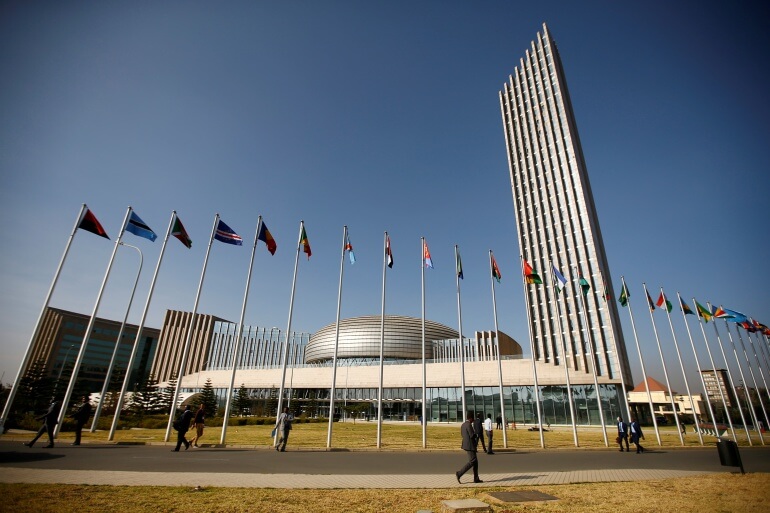The African Union (AU) on Wednesday suspended Sudan from all its activities after the military overthrew the civilian-led transitional government in a coup earlier this week. The World Bank also decided to halt its operations in Sudan and suspend aid.
The AU’s Peace and Security Council (PSC) stated that it will “suspend, with immediate effect” the participation of Sudan in all AU activities “until the effective restoration of the civilian-led Transitional Authority.” Furthermore, the PSC said it has decided “to undertake a mission to Sudan to engage with all stakeholders with a view to finding an amicable solution” to the ongoing political crisis.
The statement further condemned the military’s seizure of power, saying that it was an “unconstitutional change of government.” Noting that the coup was an “affront to the shared values and democratic norms of the AU,” the PSC called for the “immediate and unconditional” release of all detainees. It also warned the Sudanese military that “they will be held responsible for the personal health, safety and security of the detained officials.”
On the same day, the World Bank decided to halt all its operations in Sudan and suspended aid deliveries to the country in response to the military takeover. World Bank President David Malpass said the organisation has decided to pause disbursements in all of its operations and has “stopped processing any new operations” as it “closely monitor[s]” the situation.
On Monday, Sudan’s military ousted its civilian-led transition government in Khartoum in a coup. Military chief and head of Sudan Sovereignty Council Gen Abdel Fattah El-Burhan dissolved the government and declared a state of emergency after arresting Prime Minister Abdalla Hamdok. Burhan said the coup was meant to ensure Sudan’s stability, which was jeopardised due to infighting between the military and civilian parties.
Following the coup, tens of thousands of people took to the streets of Khartoum to demand an end to military rule. The protestors were met with gunfire by security forces, with at least seven people killed and several others wounded.
The coup was condemned by the international community, including the United Nations and the United States. Washington even announced the suspension of $700 million in emergency aid to Khartoum, which was intended to support the country’s democratic transition.
Meanwhile, the UN Security Council held an emergency meeting on Tuesday to discuss the situation in Sudan and the possibility of joint action. Speaking before the UNSC meeting, the United Kingdom’s ambassador to the UN said, “Two years ago, the people of Sudan put their lives on the line for democracy, and they should not have to do so again.”
Tensions between civilian and military leaders exploded following a failed coup attempt in September by a military faction that supported former dictator Omar Al-Bashir. Both camps accused each other of being responsible for the coup and for the lack of progress made by the transitional government towards establishing a democratic path forward.
The civilian-military transitional government was established in 2019 following the ouster of longtime dictator Bashir in a military coup after large-scale protests demanding his removal. Following Bashir’s removal, the military signed a power-sharing agreement with the civilian Forces of Freedom and Change coalition. The transitional government was tasked with dismantling the Bashir-era political and financial framework and easing the path towards democratic transition.
African Union Suspends Sudan Following Military Coup, World Bank Withdraws Aid
The AU condemned the military’s seizure of power and said it would undertake a mission to Sudan to engage with all stakeholders.
October 28, 2021

African Union headquarters in Addis Ababa, Ethiopia SOURCE: TIKSA NEGERI/REUTERS
